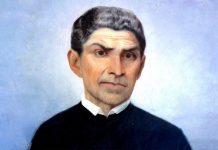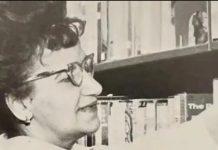Seeing Jesus come to him in the Jordan, John was already a preacher of great prestige, a prophet such as there had never been in Israel. However, far from feeling envious, the Baptist reacted with heroic humility and unlimited servitude, testifying that this Man was the Son of God.
Newsroom (Gaudium Press) “Like rejoices in like”, says an old Latin proverb, and, indeed, this is a principle intrinsic to all living beings, insofar as they are capable of happiness. God created us and made us dependent on each other, perfecting us with the most ingrained of instincts, that of sociability.
If, for a bird, meeting another bird of the same species is a reason to rejoice, for us, this phenomenon is more intense. Now, if two like-minded children are overjoyed when they meet for the first time at school, what would the reaction of the two greatest men of all times be when they see each other face to face? This is how one of the most beautiful encounters in history took place, John the Baptist before Jesus.
How did this encounter take place?
Saint John the Baptist and the virtue of humility
Ambition is a passion as universal as human life is. One could almost say that it takes root in the soul even before the use of reason, being easily discernible in the way a child grasps its toy or in the yearning to be protected.
How many of us have not fallen into the abyss of ambition, envy and greed already in our early childhood years? These were probably the roots of resentments we may have had about the glory of others. Yes, because we desire the esteem of all, because we believe ourselves entitled to the glory and praise of those around us, we resent the success of others.
This is why St. Thomas defines envy as the sadness felt because “the good of another is considered a personal evil in so far as it diminishes our glory and our excellence.”[1]
However, St. John the Baptist did not have the misfortune of nurturing this defect. For, even before he opened his eyes to contemplate the light of day, there shone upon him for six months the radiance of the virtues of Mary Most Holy. Thus, when Mary, when praised by St. Elizabeth, proclaimed, “My soul glorifies the Lord; and my spirit rejoices in God my Savior because he has looked upon the lowliness of his handmaid” (Lk 1:46-48), the Precursor learned the true value of humility.
Heroic Dispensation of the Precursor
At that time: John saw Jesus coming toward him and said, “Behold the Lamb of God, who takes away the sin of the world.” (Jn 1:29)
What was the attitude of John, a prophet like no other in Israel, when he saw Jesus and was amazed at the inevitable eclipse that his mission would suffer? If he had been attached to the honor of which he had been the object, that was the moment of resentment, of wounded ambition and perhaps even of envy.
On the contrary, educated in the school of true humility, John does not hesitate to loudly proclaim the divinity of Christ
By Jerome Siqueira
Extracted, with adaptations, from: CLÁ DIAS, João Scognamiglio. The Gospels: commentaries on the Sunday Gospels. Città del Vaticano-São Paulo: LEV-Instituto Lumen Sapientiæ, 2013, v. 2, p. 15-25.
[1] THOMAS AQUINAS. Summa Theologica. II-II, q. 36, a. 1.

































